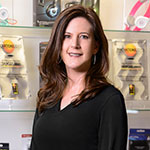It’s all about having the right people. Twenty-seven years ago, FedEx had little knowledge of the Latin American-Caribbean region. The company knew that if it wanted to expand, it would have to rely on the experience of experts in that arena. When FedEx entered the space in 1987, it did so by acquiring Island Courier and, two years later, Flying Tigers.
FedEx retained several employees from the acquired companies, including Juan Cento. Cento brought his expertise in the air cargo and express transportation industry from Flying Tigers to FedEx. Today, he is FedEx’s regional president for Latin America and the Caribbean. He manages 19,000 employees in more than 50 countries and territories and has spent the past 25 years helping FedEx emerge as a regional growth catalyst. Through acquisitions and organic growth throughout the entire division, FedEx has quadrupled its number of employees and increased the number of shipments tenfold.
The challenges associated with the newer markets include the need for better infrastructure. Transportation costs are key to FedEx’s ability to provide cost-effective services, so Cento and his team work alongside governments to help them understand the challenges associated with the industry and how the company’s infrastructure can provide technology to assist in matters such as collecting duties and taxes.
In 1994, Cento relocated to Mexico to take a position as FedEx’s managing director for Mexico and Central America. Thus began FedEx’s major focus on imports and exports between Latin American countries and the rest of the world through an expanding network that covers 220 countries and territories. Countries like Mexico were once isolated from trade, but FedEx has introduced its global network, infrastructure, and experience to provide connectivity. Even then Cento saw Mexico as a strategic region that could drive his company’s future growth. “I envisioned Mexico becoming a manufacturing powerhouse.” Two years later he became vice president of operations. “If you look at Mexico today,” he says, “the entire country makes goods to export. Our customers have been the main drivers for our having a broader footprint.”
Most recently, the company has transformed its original model to offer domestic as well as international shipping. FedEx acquired local express package delivery company MultiPack in 2011 and now covers shipping needs for all but two percent of Mexico.
Mexico was an important testing ground for FedEx, and Cento has since led similar strategies in countries such as Colombia and Brazil.
BRAZIL
Brazil represents another emerging market where FedEx plans to increase services as demand rises. Agriculture has boomed for two decades and scientific and high-tech industries are attracting foreign investments. It is the world’s seventh-largest economy and home to a large number of the world’s billionaires. “It wasn’t just the booming economy that made Brazil attractive to us,” says Cento. “We also saw the rate at which they’re adopting e-commerce. Brazil is a market in which we need to operate.” As it did in Mexico, FedEx made a strategic acquisition and is working through its integration phase.
COLOMBIA
Cento and his colleagues are also dedicated to expansion in Colombia, a country that has secured a free-trade agreement with the United States. The trade deal, along with a stable economy anchored by farming, health care, and insurance, has made the region especially attractive. “We like the economic balance of Colombia. It’s an easy place in which to do business, and we see it as the next big market,” says Cento. FedEx is introducing specific operations to address each market’s needs. In Colombia, for example, where health care business is critical, FedEx provides adequate refrigeration at facilities to make the shipping and storing of medical samples safe.
GETTING TO KNOW JUAN CENTO
How has your background influenced the exec you are today?
I moved from Cuba when I was young, not knowing the language. My entire family was shaped by our responsibility and commitment to each other, our country, and our community. Being multilingual has helped me in business, but my ability to fully integrate myself in foreign cultures (having lived in five different countries) has been more important.
What’s an experience or circumstance that has shaped your career?
I was in Brazil working for a large airline when FedEx came in and made that company its latest acquisition. Back then, FedEx didn’t know much about the Latin American market, but I watched as it relied on the human knowledge and the experience of the company it acquired. Today, we are still performing acquisitions and integrations as well as any global company, but I know that our success boils down to people. If the people in the acquired company have been successful, then everyone will benefit from letting those people teach the parent company what they already know. If the company was acquired it was obviously doing something right, and its leaders are likely to be useful experts.

